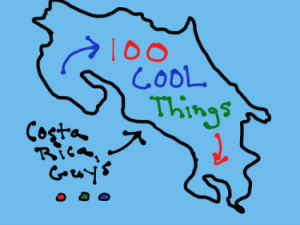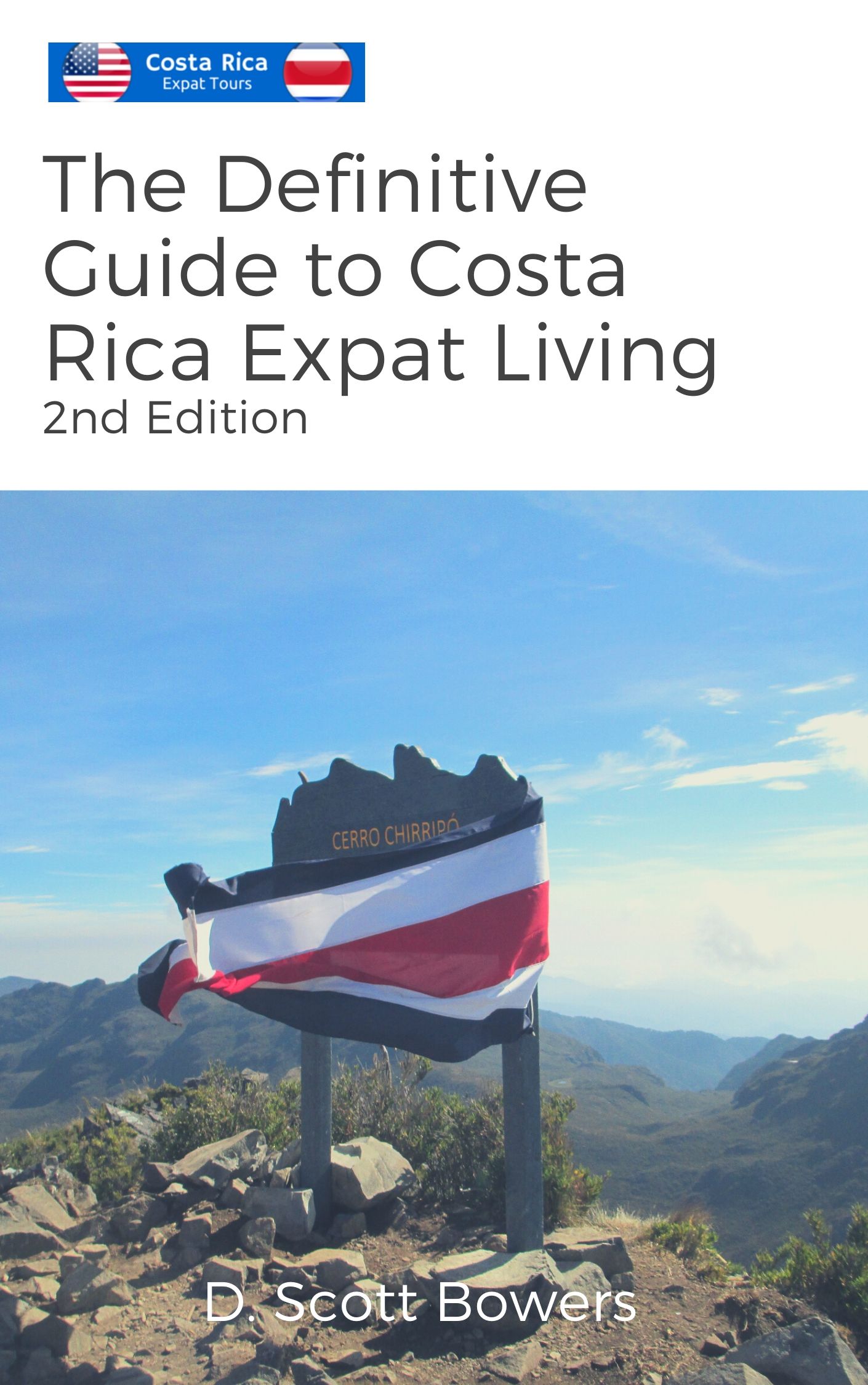 For many years I couldn’t get enough of the “self-help” stuff by writers and speakers such as Tony Robbins, Zig Ziglar, Stephen Covey, Jack Canfield and so on. I still enjoy that stuff and there is some really helpful advice contained in it. However, for years my focus, often based on their advice, was on succeeding so I could have more….a nicer car, more expensive clothes, a bigger house, vacations to anywhere I wanted, etc. There was always that little glimmer of encouragement to “be more” rather than just to “have more” as exemplified by Zig’s famous saying….”you can have everything in life you want, if you just help enough other people get what they want.” But even in that laudable phrase, there is the underlying motivation of “having more.” Yesterday I wrote a very radical post about “revolution.” And for any CIA operatives out there you can relax because I am not advocating a communist takeover of Costa Rica. What I am advocating is a major shift in paradigm. Mine occurred gradually as I was exposed to a new way of living here in Costa Rica….a way of living much less focused on material things. Of course the average per capita income of a household in the U.S. is more than twice that of Costa Rica and that difference is much more pronounced if you are talking about the “campesinos,” or country-folk. So obviously there is going to be less consumption of material things in a country like Costa Rica as compared to the U.S. However, what you learn is that even though folks here have less, they aren’t any less happy and I would venture to say even more so. This got me to thinking that maybe happiness is not found in things. The fellow I wrote about yesterday, Che Guevara, was a decided non-materialist. He shunned most material comforts (well, there were exceptions) and when he was head of the central bank in Cuba he signed Cuban banknotes with his nickname “Che” as a testament to his disdain for money and material wealth. I am not saying that we should adopt a Che Guevara mindset and live like campesinos…..weeeeel maybe I am a little. In Costa Rica campesinos live pretty well. For the most part they have decent homes, but without many of the luxuries that are taken for granted in the U.S. In fact, if I ever am so fortunate as to build my “dream home” in the Costa Rican mountains with a view to the ocean, I will certainly build a typical campesino home. They enjoy simple pleasures and live a simple life. They care for and respect the land and find great joy in the natural beauty of Costa Rica. In short, they get along just fine without the vulgar material wealth that many folks in the U.S. consider their birthright. I may be at risk of sounding like a broken record in my frequent rants about the evils of U.S.-style materialism, but my observations have led me to draw the conclusion that it is materialism that is at the heart of many of the problems the folks are facing in the U.S. and other parts of the world that are trying hard to catch up. The world simply cannot sustain it. If you have countries like China and India consuming at the same rate as the U.S. the planet is in big trouble. So what I am advocating is a major paradigm shift. One that takes us away from the idea that happiness can only be measured by how big a house (or houses) we live in. One that awakens a desire to give back rather than take and yes it can start by changing your own personal goals. By changing our goals in life from having more to being more….that is, making choices that make a difference. I am not saying in the least bit to stop striving to succeed. I believe we should maximize to the fullest extent our ability to earn an income, but it is what we then do with that income that makes the difference. Do we invest it in stuff that only provides personal comfort for ourselves, or in creating a better world. For instance, investing in a wind turbine to supply some of the electrical needs of your home may be a better idea than that swimming pool. If the kids want to swim, take the family for a nature hike to that nearby creek or “swimming hole” (hopefully non-polluted) and enjoy both the water and the natural surroundings. Take advantage of the opportunity to teach the kids the importance of keeping nature clean and beautiful. This is the paradigm shift I am advocating, just in case someone out there got the wrong idea. These days folks in the U.S. are being forced to get by with less as the result of the economy and they are screaming about it. But maybe, just maybe, it was the best thing that could have happened. Stop screaming and begin to realize that life is not about luxury, but about learning…..learning what each of us can do to create a better world.
For many years I couldn’t get enough of the “self-help” stuff by writers and speakers such as Tony Robbins, Zig Ziglar, Stephen Covey, Jack Canfield and so on. I still enjoy that stuff and there is some really helpful advice contained in it. However, for years my focus, often based on their advice, was on succeeding so I could have more….a nicer car, more expensive clothes, a bigger house, vacations to anywhere I wanted, etc. There was always that little glimmer of encouragement to “be more” rather than just to “have more” as exemplified by Zig’s famous saying….”you can have everything in life you want, if you just help enough other people get what they want.” But even in that laudable phrase, there is the underlying motivation of “having more.” Yesterday I wrote a very radical post about “revolution.” And for any CIA operatives out there you can relax because I am not advocating a communist takeover of Costa Rica. What I am advocating is a major shift in paradigm. Mine occurred gradually as I was exposed to a new way of living here in Costa Rica….a way of living much less focused on material things. Of course the average per capita income of a household in the U.S. is more than twice that of Costa Rica and that difference is much more pronounced if you are talking about the “campesinos,” or country-folk. So obviously there is going to be less consumption of material things in a country like Costa Rica as compared to the U.S. However, what you learn is that even though folks here have less, they aren’t any less happy and I would venture to say even more so. This got me to thinking that maybe happiness is not found in things. The fellow I wrote about yesterday, Che Guevara, was a decided non-materialist. He shunned most material comforts (well, there were exceptions) and when he was head of the central bank in Cuba he signed Cuban banknotes with his nickname “Che” as a testament to his disdain for money and material wealth. I am not saying that we should adopt a Che Guevara mindset and live like campesinos…..weeeeel maybe I am a little. In Costa Rica campesinos live pretty well. For the most part they have decent homes, but without many of the luxuries that are taken for granted in the U.S. In fact, if I ever am so fortunate as to build my “dream home” in the Costa Rican mountains with a view to the ocean, I will certainly build a typical campesino home. They enjoy simple pleasures and live a simple life. They care for and respect the land and find great joy in the natural beauty of Costa Rica. In short, they get along just fine without the vulgar material wealth that many folks in the U.S. consider their birthright. I may be at risk of sounding like a broken record in my frequent rants about the evils of U.S.-style materialism, but my observations have led me to draw the conclusion that it is materialism that is at the heart of many of the problems the folks are facing in the U.S. and other parts of the world that are trying hard to catch up. The world simply cannot sustain it. If you have countries like China and India consuming at the same rate as the U.S. the planet is in big trouble. So what I am advocating is a major paradigm shift. One that takes us away from the idea that happiness can only be measured by how big a house (or houses) we live in. One that awakens a desire to give back rather than take and yes it can start by changing your own personal goals. By changing our goals in life from having more to being more….that is, making choices that make a difference. I am not saying in the least bit to stop striving to succeed. I believe we should maximize to the fullest extent our ability to earn an income, but it is what we then do with that income that makes the difference. Do we invest it in stuff that only provides personal comfort for ourselves, or in creating a better world. For instance, investing in a wind turbine to supply some of the electrical needs of your home may be a better idea than that swimming pool. If the kids want to swim, take the family for a nature hike to that nearby creek or “swimming hole” (hopefully non-polluted) and enjoy both the water and the natural surroundings. Take advantage of the opportunity to teach the kids the importance of keeping nature clean and beautiful. This is the paradigm shift I am advocating, just in case someone out there got the wrong idea. These days folks in the U.S. are being forced to get by with less as the result of the economy and they are screaming about it. But maybe, just maybe, it was the best thing that could have happened. Stop screaming and begin to realize that life is not about luxury, but about learning…..learning what each of us can do to create a better world.








Comments
Patrick
I’ve listened to some Zig myself. It seems all well and good for a couple weeks and then you start to feel like it might drive you crazy.
You are definitely an idealist. You might be doing even more positive thinking about a better world than Zig! I liked that you mentioned in your other piece that MLK was more successful going the peaceful route. God knows Latin America does not need anymore protracted conflicts. A Che without a grenade launcher would be nice though.
Anyhow, your daughter gave me your blog address. Thanks for the good words.
–Cheers
D.T.
There seems to be a kindness in you but one that is misguided. Materialism is very much out of control but the solution you’re seeking will not be found in any of the ideas of Che. He believed in complete socialism where everything was communal- that’s fine if you wish to live that way but when you begin to force that on others then it becomes a dictatorship. Things never brought happiness so I’d look for something more lasting and stay away from socialism and communism because they always end in violence and death for those they are trying to help.
admin
I appreciate all your comments, but you are making the assumption that I support socialism or communism merely because I may have mentioned Che in a favorable light. What I advocate is that maybe life should be less about accummulating things than about making a difference. None of the “isms” have it right. The answer lies in both compassion and common sense. It does not lie in a stubborn refusal to try to understand people who come from a dramatically different perspective and world view.